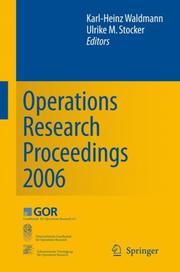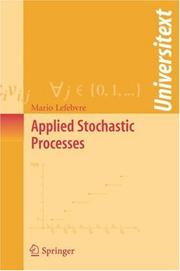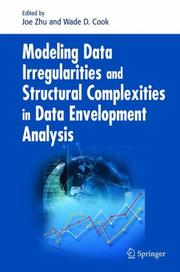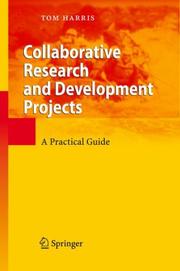| Listing 1 - 10 of 26 | << page >> |
Sort by
|
Book
Abstract | Keywords | Export | Availability | Bookmark
 Loading...
Loading...Choose an application
- Reference Manager
- EndNote
- RefWorks (Direct export to RefWorks)
Long description: In the information or knowledge society, there is a need for transdisciplinary research, i. e. research that deals with complex life-world problems. Transdisciplinary projects aim to come up with practice-oriented solutions that serve what is perceived to be the common good. In order to achieve this, they transcend disciplinary boundaries and include the perspectives of public agencies, the business community and civil society in the research process. This process is therefore particularly challenging for those involved. This book is proposed by the transdisciplinarity-net, which is a project supported by the Swiss Academies of Arts and Sciences. It offers a means of designing transdisciplinary research. The tools presented here help structure the research process, in particular with a view to: • adequately reducing the complexity of a problem field, • taking into account the multiplicity of perspectives, • embedding research into the social context, and • adapting concepts and methods in the course of the research process. This publication shows how these tools can be used in the three phases of a transdisciplinary research process: identifying and structuring the problem, analyzing the problem and bringing results to fruition.
research --- transdisciplinary research --- Research Management


ISBN: 1281043435 9786611043438 3540699953 3540699945 Year: 2007 Publisher: Berlin : Springer,
Abstract | Keywords | Export | Availability | Bookmark
 Loading...
Loading...Choose an application
- Reference Manager
- EndNote
- RefWorks (Direct export to RefWorks)
This volume contains a selection of papers referring to lectures presented at the symposium ”OperationsResearch 2006” (OR 2006) held at the university of Karlsruhe, September 6 - 8, 2006. This international conference took place under the auspices of the Operations Research Societies of Germany (GOR), ¨ Austria (OGOR), and Switzerland (SVOR). The symposiumwas attended by morethan 600academicsand practiti- ers from 35 countries. It presented the state of the art in Operations Research and related areas in Economics, Mathematics, and Computer Science and demonstrated the broad applicability of its core themes, placing particular emphasis on Basel II, one of the most topical challenges of Operations - search. The scienti?c program consisted of two plenary talks, eleven semi-plenary talks and more than 400 contributed papers, selected by the program c- mittee and arranged in 19 sections. These presentations were complemented by the lectures of the GOR prize winners including the Unternehmenspreis, which has been awarded for the ?rst time. Firstofallwethankallparticipantsoftheconference,whosubmittedtheir paper for publication. However, due to a limited number of pages available for the proceedings volume, the total number of accepted papers had to be restricted. Moreover, we want to express our thanks to the program committee and the section chairs for their support in acquiring interesting contributions and acting as a referee. Finally, we thank Anna Palej for gathering and editing the accepted papers as well as Dr. Werner A. Muller ¨ and Barbara Feß from Springer for their support in publishing this volume.
Operations research --- Operations research. --- Leadership. --- Operations Research/Decision Theory. --- Business Strategy/Leadership. --- Operations Research, Management Science. --- Ability --- Command of troops --- Followership --- Operational analysis --- Operational research --- Industrial engineering --- Management science --- Research --- System theory --- Decision making. --- Management science. --- Quantitative business analysis --- Management --- Problem solving --- Statistical decision --- Deciding --- Decision (Psychology) --- Decision analysis --- Decision processes --- Making decisions --- Management decisions --- Choice (Psychology) --- Decision making

ISBN: 1280817070 9786610817078 0387367217 0387367209 1441942203 Year: 2007 Publisher: New York : Springer,
Abstract | Keywords | Export | Availability | Bookmark
 Loading...
Loading...Choose an application
- Reference Manager
- EndNote
- RefWorks (Direct export to RefWorks)
The research of Antanas Žilinskas has focused on developing models for global optimization, implementing and investigating the corresponding algorithms, and applying those algorithms to practical problems. This volume, dedicated to Professor Žilinskas on the occasion of his 60th birthday, contains new survey papers in which leading researchers from the field present various models and algorithms for solving global optimization problems. Audience This book is intended for scientists and graduate students in computer science and applied mathematics who are interested in optimization algorithms and numerical analysis.
Mathematical optimization. --- Stochastic processes. --- Zhilinskas, A. --- Optimization (Mathematics) --- Optimization techniques --- Optimization theory --- Systems optimization --- Mathematical analysis --- Maxima and minima --- Operations research --- Simulation methods --- System analysis --- Random processes --- Probabilities --- Žilinskas, Antanas --- Žilinskas, A. --- Zhilinskas, Antanas --- Computer science --- Optimization. --- Operations Research, Management Science. --- Computational Mathematics and Numerical Analysis. --- Mathematics. --- Computer mathematics --- Discrete mathematics --- Electronic data processing --- Mathematics --- Operations research. --- Management science. --- Computer mathematics. --- Quantitative business analysis --- Management --- Problem solving --- Statistical decision --- Operational analysis --- Operational research --- Industrial engineering --- Management science --- Research --- System theory
Book
ISBN: 1281043575 9786611043575 3540736719 3540736700 3642092845 Year: 2007 Publisher: Berlin : Springer,
Abstract | Keywords | Export | Availability | Bookmark
 Loading...
Loading...Choose an application
- Reference Manager
- EndNote
- RefWorks (Direct export to RefWorks)
This book presents a unified treatment of linear programming. Without sacrificing mathematical rigor, the main emphasis of the book is on models and applications. The most important classes of problems are surveyed and presented by means of mathematical formulations, followed by solution methods and a discussion of a variety of "what-if" scenarios. Non-simplex based solution methods and newer developments such as interior point methods are covered along with a variety of approaches that incorporate multiple objectives in the model. .
Linear programming. --- Industrial engineering. --- Management engineering --- Simplification in industry --- Engineering --- Value analysis (Cost control) --- Production scheduling --- Programming (Mathematics) --- Operations research. --- Engineering economy. --- Operations Research/Decision Theory. --- Operations Research, Management Science. --- Engineering Economics, Organization, Logistics, Marketing. --- Economy, Engineering --- Engineering economics --- Industrial engineering --- Operational analysis --- Operational research --- Management science --- Research --- System theory --- Decision making. --- Management science. --- Engineering economics. --- Deciding --- Decision (Psychology) --- Decision analysis --- Decision processes --- Making decisions --- Management --- Management decisions --- Choice (Psychology) --- Problem solving --- Quantitative business analysis --- Operations research --- Statistical decision --- Decision making

ISBN: 1281343250 9786611343255 3764374004 3764372281 Year: 2007 Publisher: Basel, Switzerland ; Boston : Birkhauser,
Abstract | Keywords | Export | Availability | Bookmark
 Loading...
Loading...Choose an application
- Reference Manager
- EndNote
- RefWorks (Direct export to RefWorks)
In July 2004, a conference on graph theory was held in Paris in memory of Claude Berge, one of the pioneers of the field. The event brought together many prominent specialists on topics, such as perfect graphs and matching theory, upon which Claude Berge's work has had a major impact. This volume includes contributions to these and other topics from many of the participants.
Graph theory --- Berge, Claude. --- Berge, C. --- Algebra. --- Discrete groups. --- Order, Lattices, Ordered Algebraic Structures. --- Convex and Discrete Geometry. --- Operations Research, Management Science. --- Groups, Discrete --- Infinite groups --- Mathematics --- Mathematical analysis --- Discrete mathematics --- Ordered algebraic structures. --- Convex geometry . --- Discrete geometry. --- Operations research. --- Management science. --- Quantitative business analysis --- Management --- Problem solving --- Operations research --- Statistical decision --- Operational analysis --- Operational research --- Industrial engineering --- Management science --- Research --- System theory --- Geometry --- Combinatorial geometry --- Algebraic structures, Ordered --- Structures, Ordered algebraic --- Algebra --- Berge, Claude

ISBN: 9780387489766 9780387341712 0387341714 0387489762 Year: 2007 Publisher: New York: Springer,
Abstract | Keywords | Export | Availability | Bookmark
 Loading...
Loading...Choose an application
- Reference Manager
- EndNote
- RefWorks (Direct export to RefWorks)
Applied Stochastic Processes uses a distinctly applied framework to present the most important topics in the field of stochastic processes. Key features: -Presents carefully chosen topics such as Gaussian and Markovian processes, Markov chains, Poisson processes, Brownian motion, and queueing theory -Examines in detail special diffusion processes, with implications for finance, various generalizations of Poisson processes, and renewal processes -Serves graduate students in a variety of disciplines such as applied mathematics, operations research, engineering, finance, and business administration -Contains numerous examples and approximately 350 advanced problems, reinforcing both concepts and applications -Includes entertaining mini-biographies of mathematicians, giving an enriching historical context -Covers basic results in probability Two appendices with statistical tables and solutions to the even-numbered problems are included at the end. This textbook is for graduate students in applied mathematics, operations research, and engineering. Pure mathematics students interested in the applications of probability and stochastic processes and students in business administration will also find this book useful. Bio: Mario Lefebvre received his B.Sc. and M.Sc. in mathematics from the Université de Montréal, Canada, and his Ph.D. in mathematics from the University of Cambridge, England. He is a professor in the Department of Mathematics and Industrial Engineering at the École Polytechnique de Montréal. He has written five books, including another Springer title, Applied Probability and Statistics, and has published numerous papers on applied probability, statistics, and stochastic processes in international mathematical and engineering journals. This book developed from the author’s lecture notes for a course he has taught at the École Polytechnique de Montréal since 1988.
analyse (wiskunde) --- operationeel onderzoek --- Operational research. Game theory --- Engineering sciences. Technology --- speltheorie --- kansrekening --- ingenieurswetenschappen --- stochastische analyse --- Stochastic processes --- Stochastic processes. --- Processus stochastiques --- EPUB-LIV-FT LIVMATHE SPRINGER-B --- Distribution (Probability theory. --- Engineering mathematics. --- Probability Theory and Stochastic Processes. --- Operations Research, Management Science. --- Mathematical and Computational Engineering. --- Engineering --- Engineering analysis --- Mathematical analysis --- Distribution functions --- Frequency distribution --- Characteristic functions --- Probabilities --- Mathematics --- Probabilities. --- Operations research. --- Management science. --- Applied mathematics. --- Quantitative business analysis --- Management --- Problem solving --- Operations research --- Statistical decision --- Operational analysis --- Operational research --- Industrial engineering --- Management science --- Research --- System theory --- Probability --- Statistical inference --- Combinations --- Chance --- Least squares --- Mathematical statistics --- Risk

ISBN: 1280937262 9786610937264 0387716076 0387716068 1441944001 Year: 2007 Publisher: New York : Springer,
Abstract | Keywords | Export | Availability | Bookmark
 Loading...
Loading...Choose an application
- Reference Manager
- EndNote
- RefWorks (Direct export to RefWorks)
In a relatively short period of time, Data Envelopment Analysis (DEA) has grown into a powerful quantitative, analytical tool for measuring and evaluating performance. It has been successfully applied to a whole variety of problems in many different contexts worldwide. The analysis of an array of these problems has been resistant to other methodological approaches because of the multiple levels of complexity that must be considered. Several examples of multifaceted problems in which DEA analysis has been successfully used are: (1) maintenance activities of US Air Force bases in geographically dispersed locations, (2) policy force efficiencies in the United Kingdom, (3) branch bank performances in Canada, Cyprus, and other countries and (4) the efficiency of universities in performing their education and research functions in the U.S., England, and France. In addition to localized problems, DEA applications have been extended to performance evaluations of 'larger entities' such as cities, regions, and countries. These extensions have a wider scope than traditional analyses because they include "social" and "quality-of-life" dimensions which require the modeling of qualitative and quantitative data in order to analyze the layers of complexity for an evaluation of performance and to provide solution strategies. DEA is computational at its core and this book by Zhu and Cook deals with the micro aspects of handling and modeling data issues in modeling DEA problems. DEA's use has grown with its capability of dealing with complex "service industry" and the "public service domain" types of problems that require modeling both qualitative and quantitative data. It is a handbook treatment dealing with specific data problems including the following: (1) imprecise data, (2) inaccurate data, (3) missing data, (4) qualitative data, (5) outliers, (6) undesirable outputs, (7) quality data, (8) statistical analysis, (9) software and other data aspects of modeling complex DEA problems. In addition, the book demonstrates how to visualize DEA results when the data is more than 3-dimensional, and how to identify efficiency units quickly and accurately.
Data envelopment analysis. --- Performance --- Measurement. --- DEA (Data envelopment analysis) --- Linear programming --- Multivariate analysis --- Operations research. --- Mathematical optimization. --- Public finance. --- Econometrics. --- Business. --- Operations Research/Decision Theory. --- Optimization. --- Public Economics. --- Business and Management, general. --- Operations Research, Management Science. --- Trade --- Economics --- Management --- Commerce --- Industrial management --- Economics, Mathematical --- Statistics --- Cameralistics --- Public finance --- Currency question --- Optimization (Mathematics) --- Optimization techniques --- Optimization theory --- Systems optimization --- Mathematical analysis --- Maxima and minima --- Operations research --- Simulation methods --- System analysis --- Operational analysis --- Operational research --- Industrial engineering --- Management science --- Research --- System theory --- Public finances --- Decision making. --- Management science. --- Quantitative business analysis --- Problem solving --- Statistical decision --- Deciding --- Decision (Psychology) --- Decision analysis --- Decision processes --- Making decisions --- Management decisions --- Choice (Psychology) --- Decision making

ISBN: 1280853670 9786610853670 1601198728 3540460535 3540460527 3642079628 Year: 2007 Publisher: Berlin ; London : Springer,
Abstract | Keywords | Export | Availability | Bookmark
 Loading...
Loading...Choose an application
- Reference Manager
- EndNote
- RefWorks (Direct export to RefWorks)
A lot of time and money is invested in collaborative research and development projects at universities, research institutes and companies. But how should these complex projects be planned and run to create valuable commercial outcomes? This book is a manual for all individuals and organisations from academia and industry working together on research and development projects. Whether grant funded, company to company or academic to company, this inspiring and highly readable book covers winning grant support, the legal arrangements, working with academics and practitioners, managing project progress and exploiting the project results. The examples, practical methods and tips in this book will not only help the reader prepare for grant applications, but more importantly help to achieve the best results and returns from every collaborative project.
Research --- Research and development partnership. --- Management. --- Development and research partnership --- Partnership, Research and development --- Limited partnership --- Research management --- Education, Higher. --- Engineering. --- Computer science. --- Medicine. --- Innovation/Technology Management. --- Higher Education. --- Engineering, general. --- Computer Science, general. --- Biomedicine general. --- Clinical sciences --- Medical profession --- Human biology --- Life sciences --- Medical sciences --- Pathology --- Physicians --- Construction --- Industrial arts --- Technology --- College students --- Higher education --- Postsecondary education --- Universities and colleges --- Administration --- Industrial relations --- Organization --- Informatics --- Science --- Education --- Health Workforce --- Industrial management. --- Higher education. --- Biomedicine, general. --- Business administration --- Business enterprises --- Business management --- Corporate management --- Corporations --- Industrial administration --- Management, Industrial --- Rationalization of industry --- Scientific management --- Management --- Business --- Industrial organization

ISBN: 3540698264 3540698256 Year: 2007 Publisher: Berlin, Heidelberg : Springer Berlin Heidelberg : Imprint: Springer,
Abstract | Keywords | Export | Availability | Bookmark
 Loading...
Loading...Choose an application
- Reference Manager
- EndNote
- RefWorks (Direct export to RefWorks)
The main purpose of the book is to give a rigorous, yet mostly nontechnical, introduction to the most important and useful solution methods of various types of stochastic control problems for jump diffusions and its applications. The types of control problems covered include classical stochastic control, optimal stopping, impulse control and singular control. Both the dynamic programming method and the maximum principle method are discussed, as well as the relation between them. Corresponding verification theorems involving the Hamilton-Jacobi Bellman equation and/or (quasi-)variational inequalities are formulated. There are also chapters on the viscosity solution formulation and numerical methods. The text emphasises applications, mostly to finance. All the main results are illustrated by examples and exercises appear at the end of each chapter with complete solutions. This will help the reader understand the theory and see how to apply it. The book assumes some basic knowledge of stochastic analysis, measure theory and partial differential equations. In the 2nd edition there is a new chapter on optimal control of stochastic partial differential equations driven by Lévy processes. There is also a new section on optimal stopping with delayed information. Moreover, corrections and other improvements have been made.
Stochastic control theory. --- Stochastic processes. --- Viscosity solutions. --- Hamilton-Jacobi equations --- Random processes --- Probabilities --- Control theory --- Stochastic processes --- Distribution (Probability theory. --- Operator theory. --- Finance. --- Probability Theory and Stochastic Processes. --- Operations Research, Management Science. --- Operator Theory. --- Quantitative Finance. --- Funding --- Funds --- Economics --- Currency question --- Functional analysis --- Distribution functions --- Frequency distribution --- Characteristic functions --- Probabilities. --- Operations research. --- Management science. --- Economics, Mathematical . --- Mathematical economics --- Econometrics --- Mathematics --- Quantitative business analysis --- Management --- Problem solving --- Operations research --- Statistical decision --- Operational analysis --- Operational research --- Industrial engineering --- Management science --- Research --- System theory --- Probability --- Statistical inference --- Combinations --- Chance --- Least squares --- Mathematical statistics --- Risk --- Methodology --- Economics, Mathematical.

ISBN: 1281353272 9786611353278 3540737561 3540737553 Year: 2007 Publisher: Berlin : Springer,
Abstract | Keywords | Export | Availability | Bookmark
 Loading...
Loading...Choose an application
- Reference Manager
- EndNote
- RefWorks (Direct export to RefWorks)
Les notions d'ordre, de classement, de rangement sont présentés dans de multiples activités et situations humaines. La formalisation mathématique de ces notions a permis d'abord le grand développement de la théorie des treillis, puis celui de structures ordonnées plus générales, notamment celles relevant des mathématiques discrètes. Les buts principaux de cet ouvrage qui comble un vide sont donc de: - donner les concepts et résultats fondamentaux sur les ensembles ordonnés finis, - présenter leurs usages dans des domaines variés (de la RO ou l’IA à la micro-économie), - signaler un certain nombre de résultats et de recherches en cours. Le lecteur sera ainsi à même de trouver tout ce qu'il a besoin de connaître sur ces structures sans devoir le rechercher dans de multiples revues relevant de disciplines variées.
Ordered sets. --- Computer science --- Knowledge representation (Information theory) --- Operations research. --- Operational analysis --- Operational research --- Industrial engineering --- Management science --- Research --- System theory --- Mathematics. --- Representation of knowledge (Information theory) --- Artificial intelligence --- Information theory --- Computer mathematics --- Discrete mathematics --- Electronic data processing --- Sets, Ordered --- Set theory --- Mathematics --- Algebra. --- Order, Lattices, Ordered Algebraic Structures. --- Game Theory, Economics, Social and Behav. Sciences. --- Operations Research, Management Science. --- Math --- Science --- Mathematical analysis --- Ordered algebraic structures. --- Game theory. --- Management science. --- Games, Theory of --- Theory of games --- Mathematical models --- Quantitative business analysis --- Management --- Problem solving --- Operations research --- Statistical decision --- Algebraic structures, Ordered --- Structures, Ordered algebraic --- Algebra --- Ensembles ordonnés --- Théorie des ensembles
| Listing 1 - 10 of 26 | << page >> |
Sort by
|

 Search
Search Feedback
Feedback About UniCat
About UniCat  Help
Help News
News